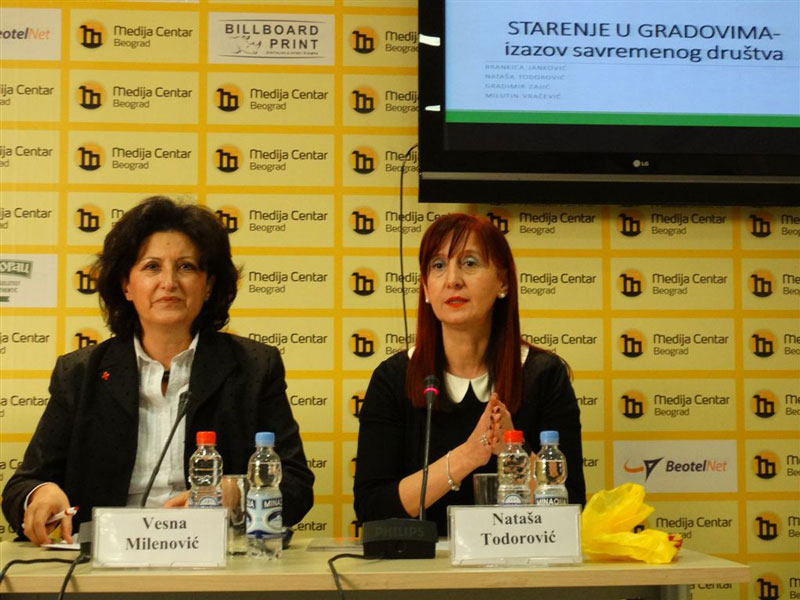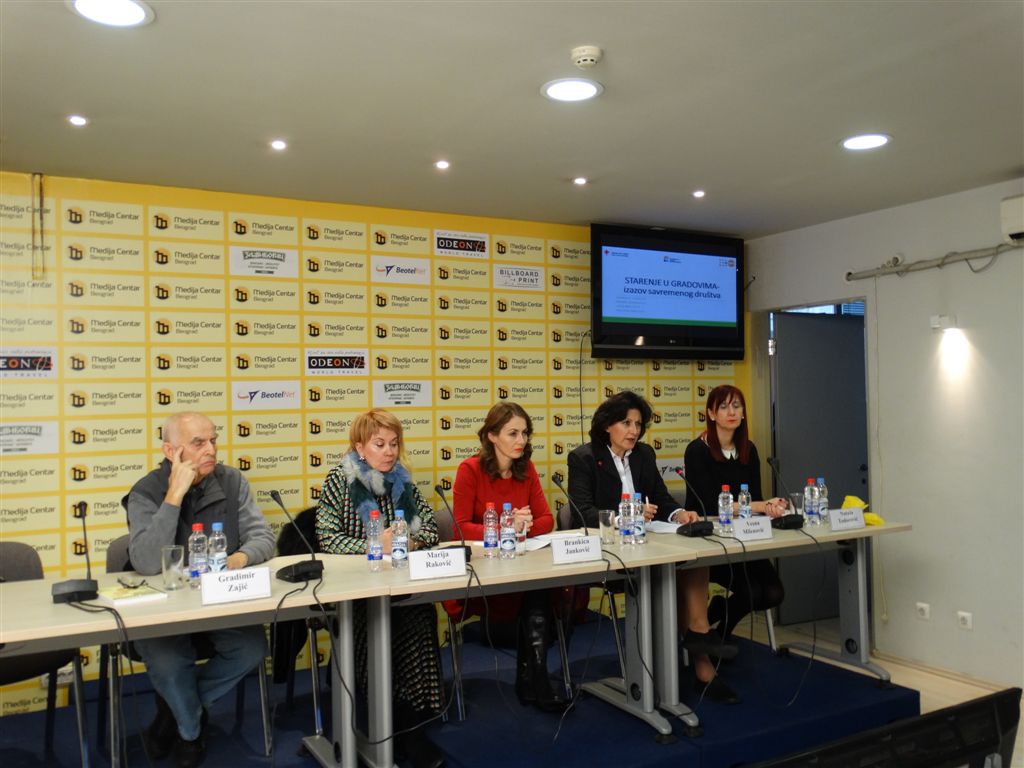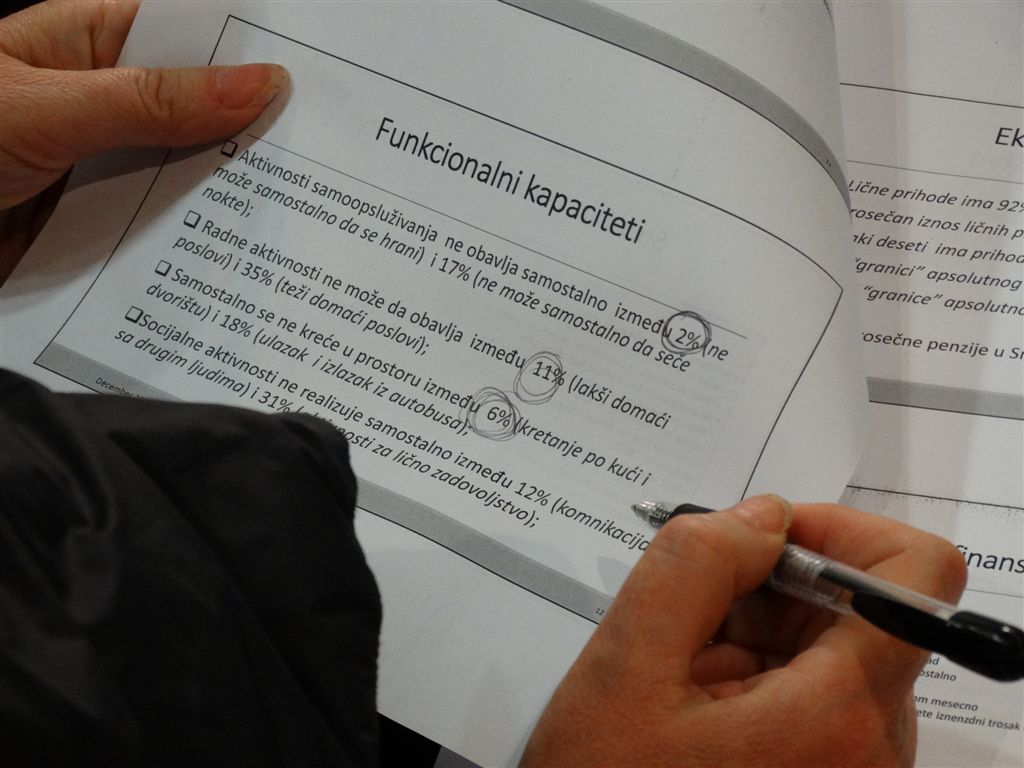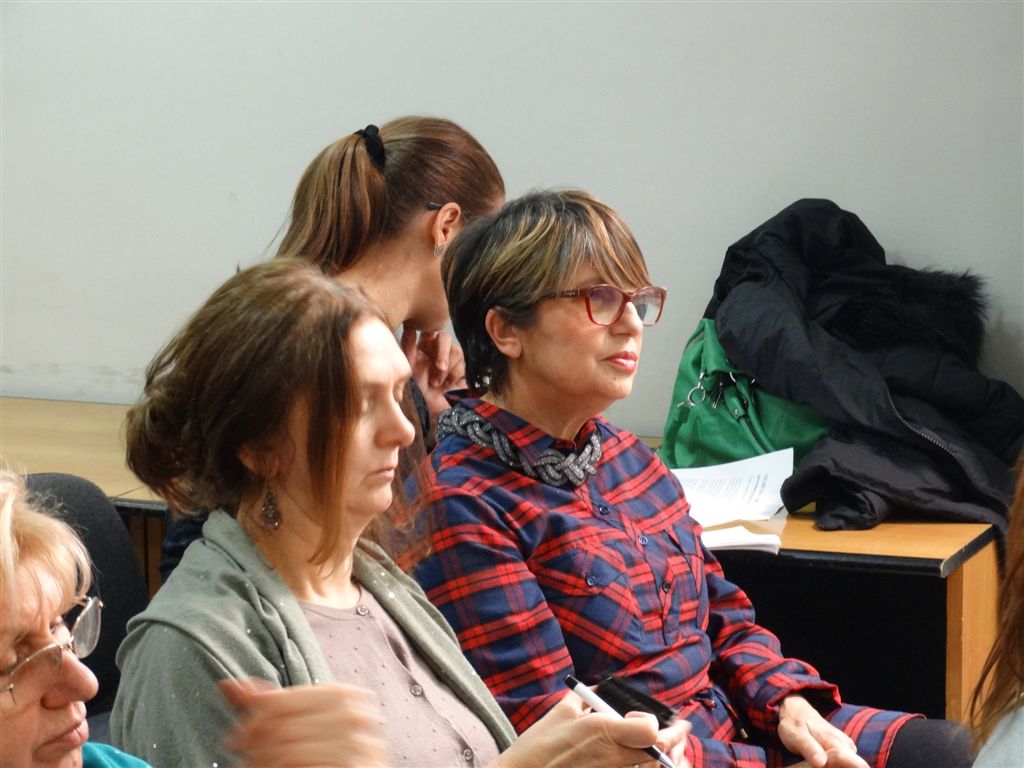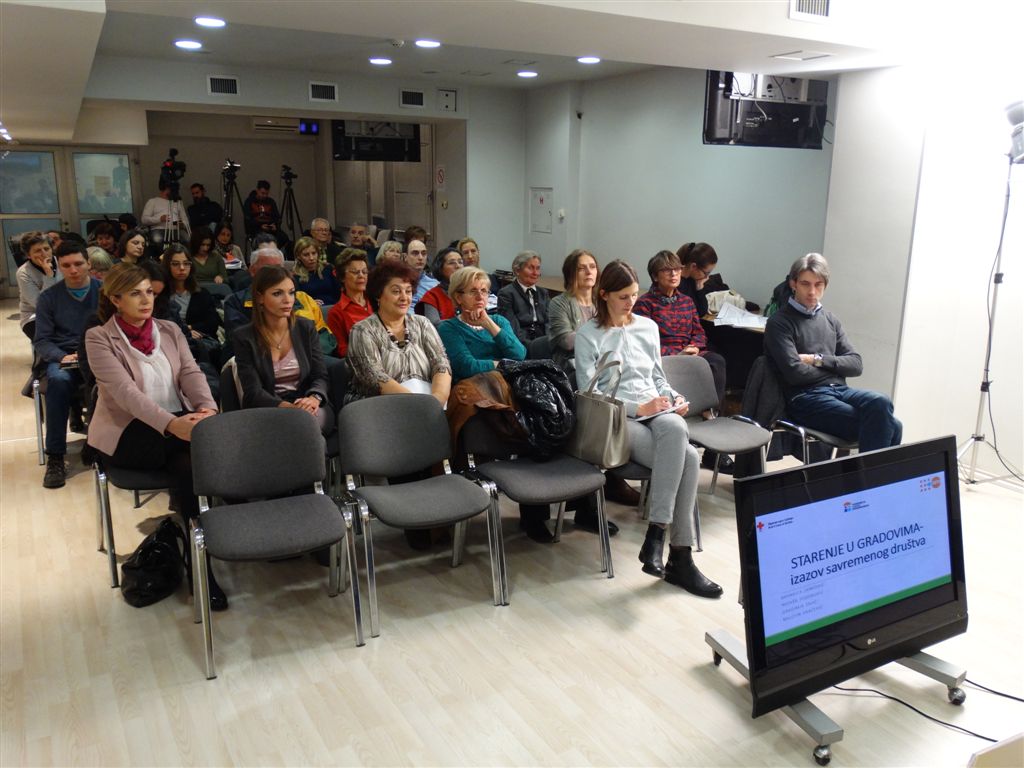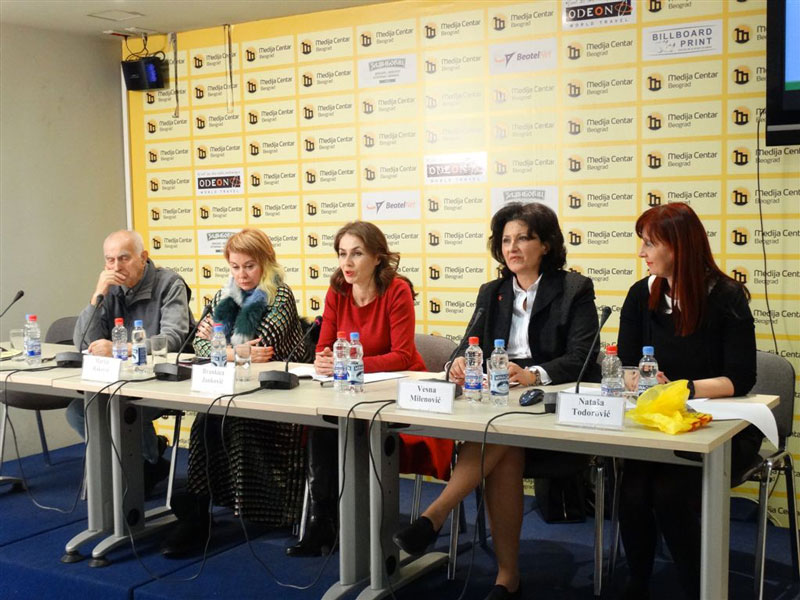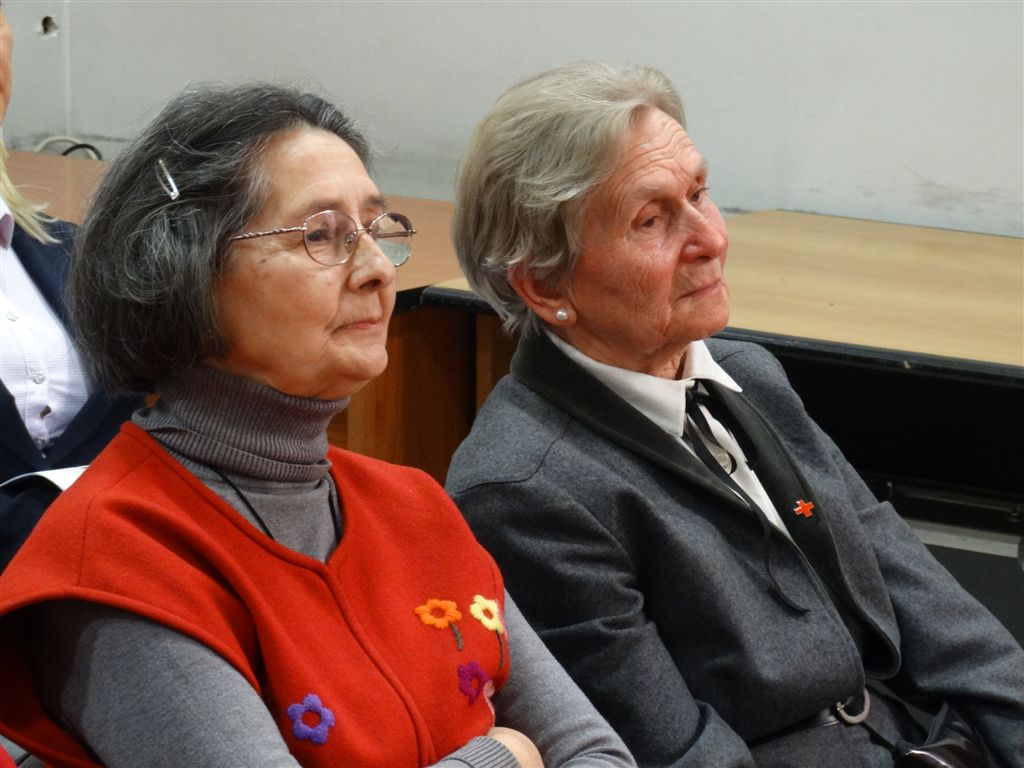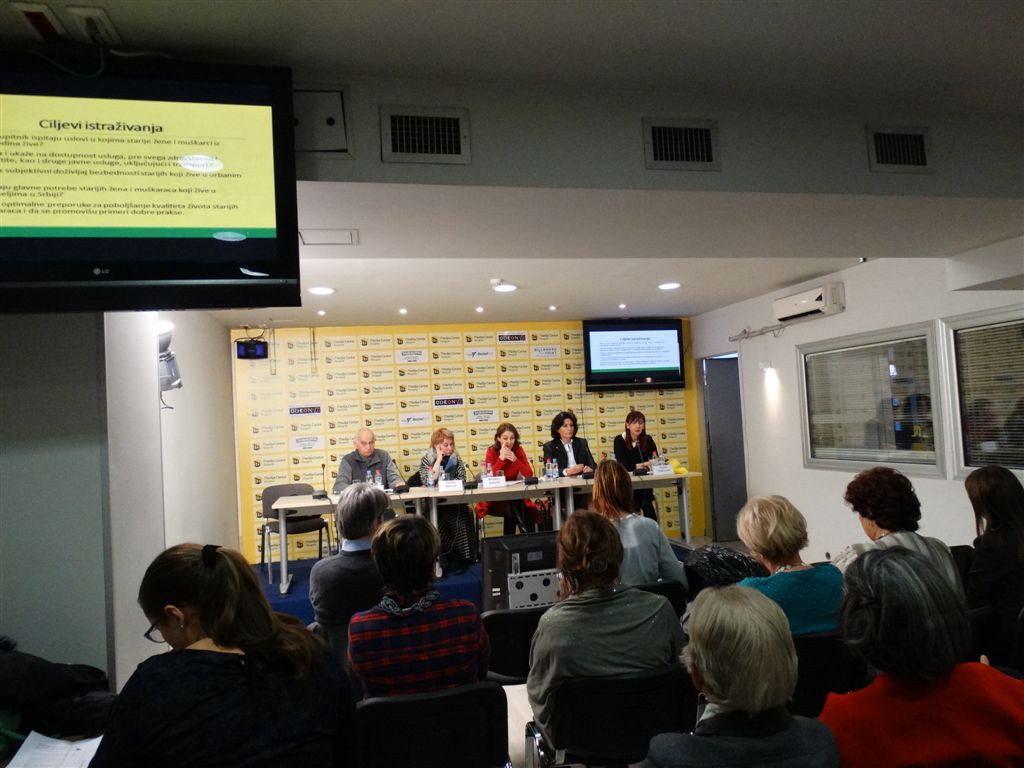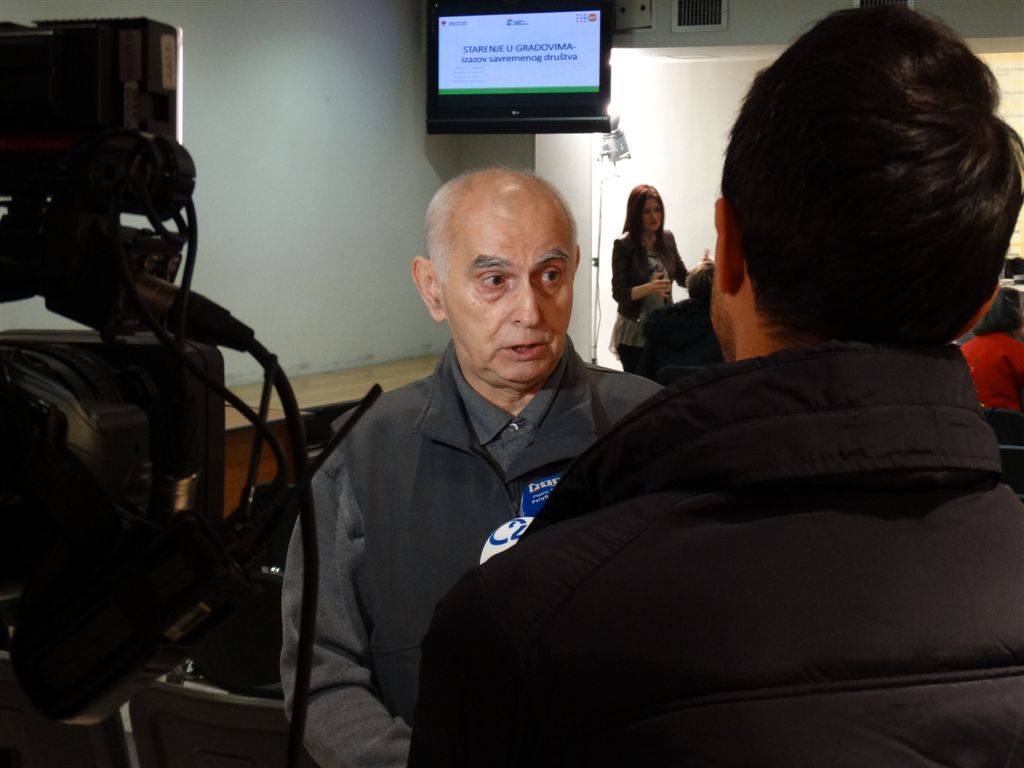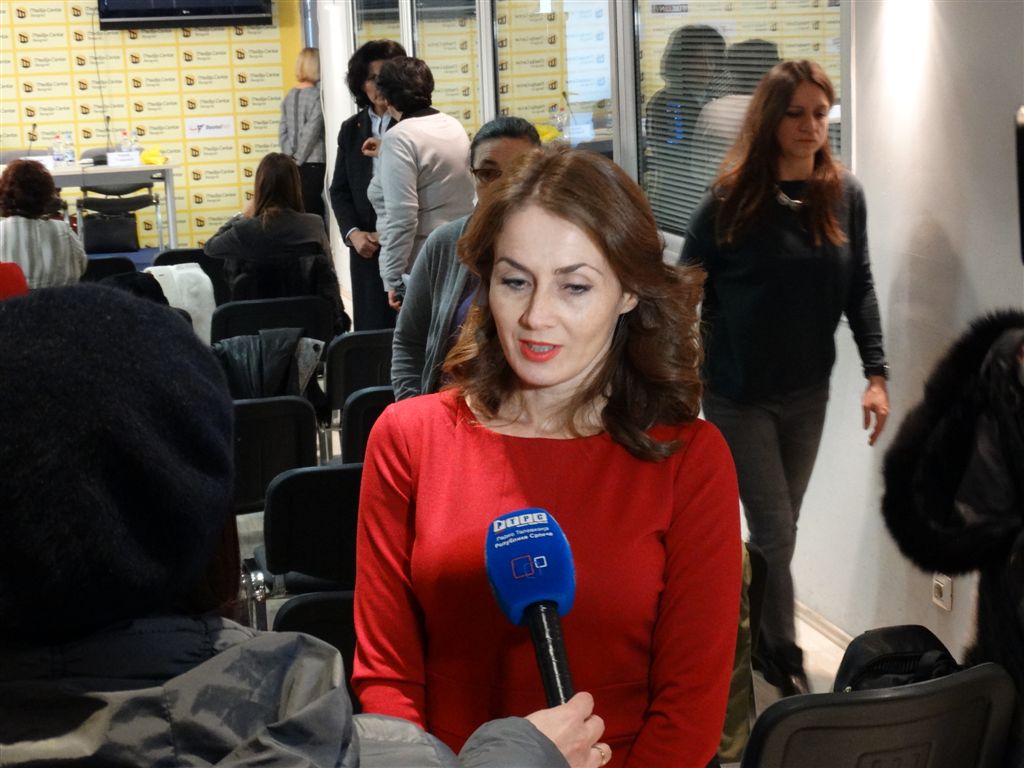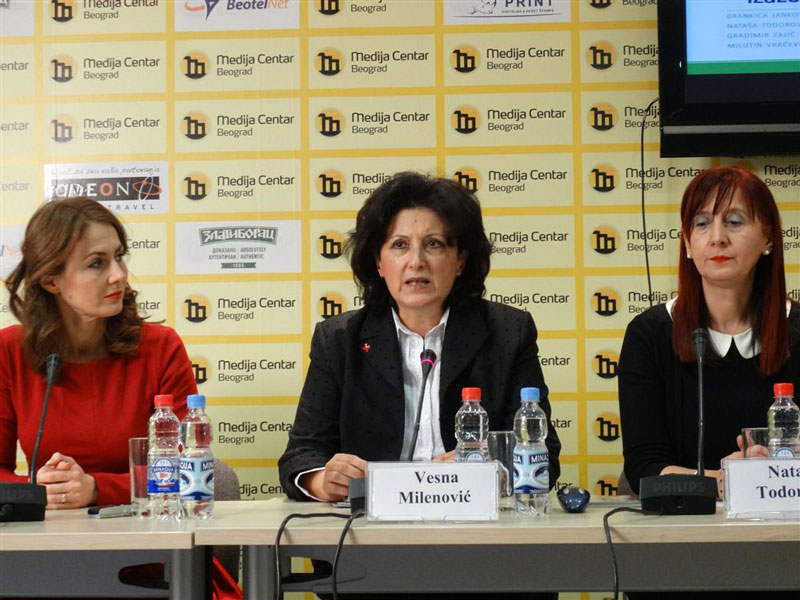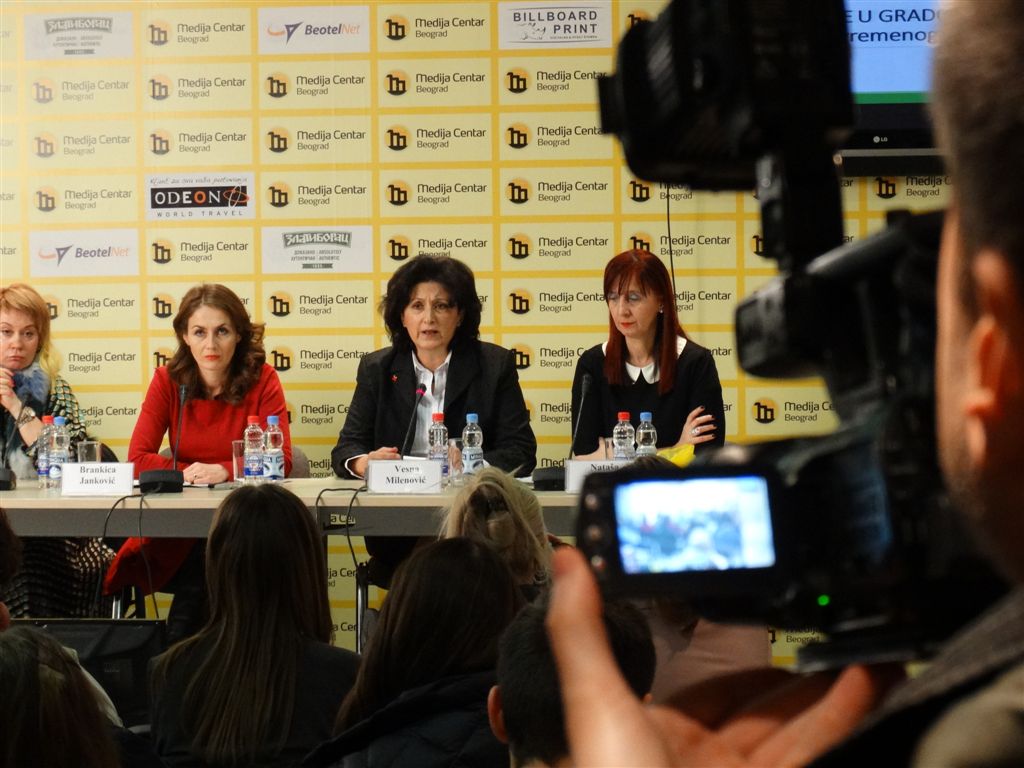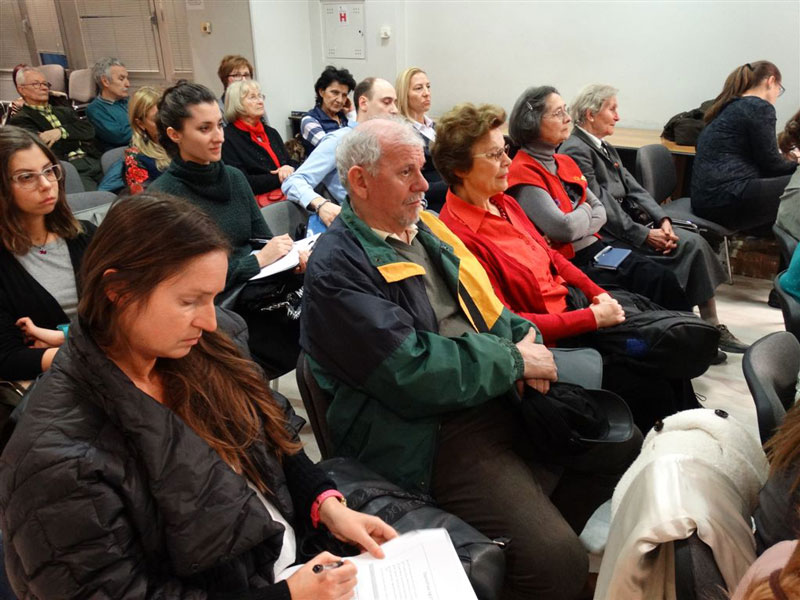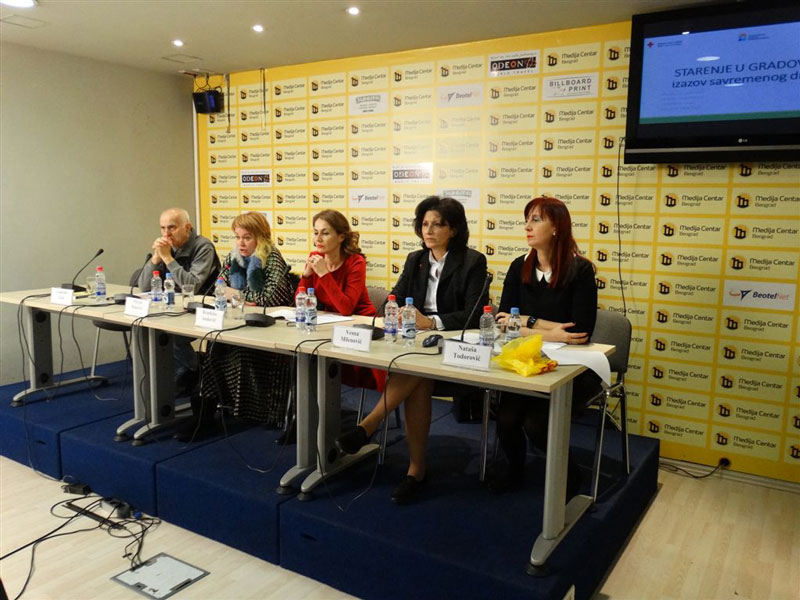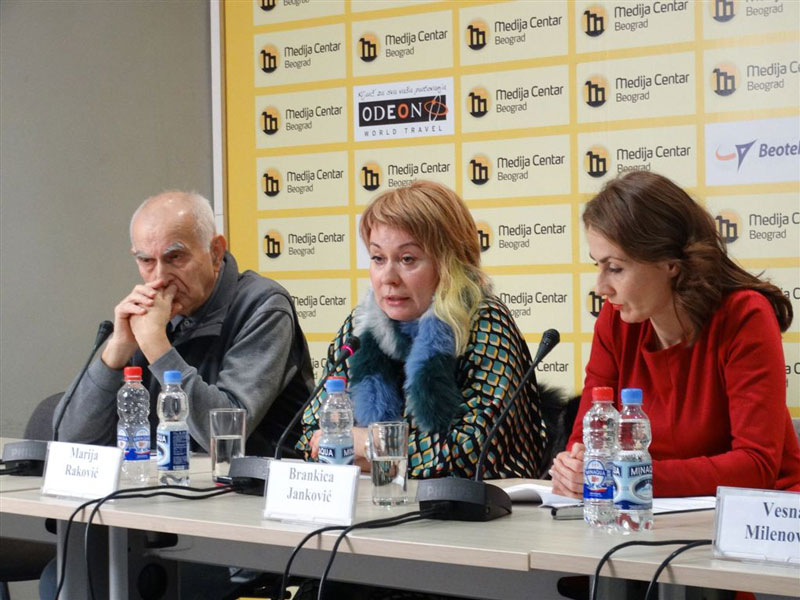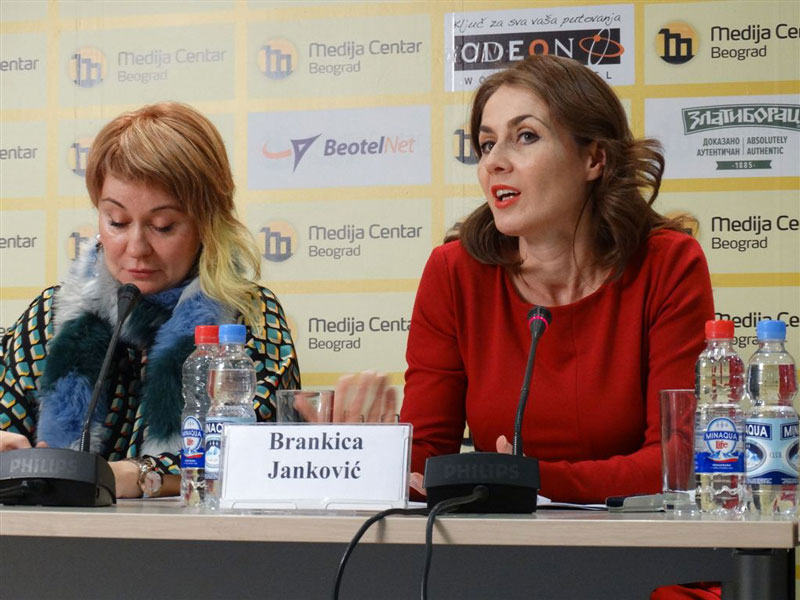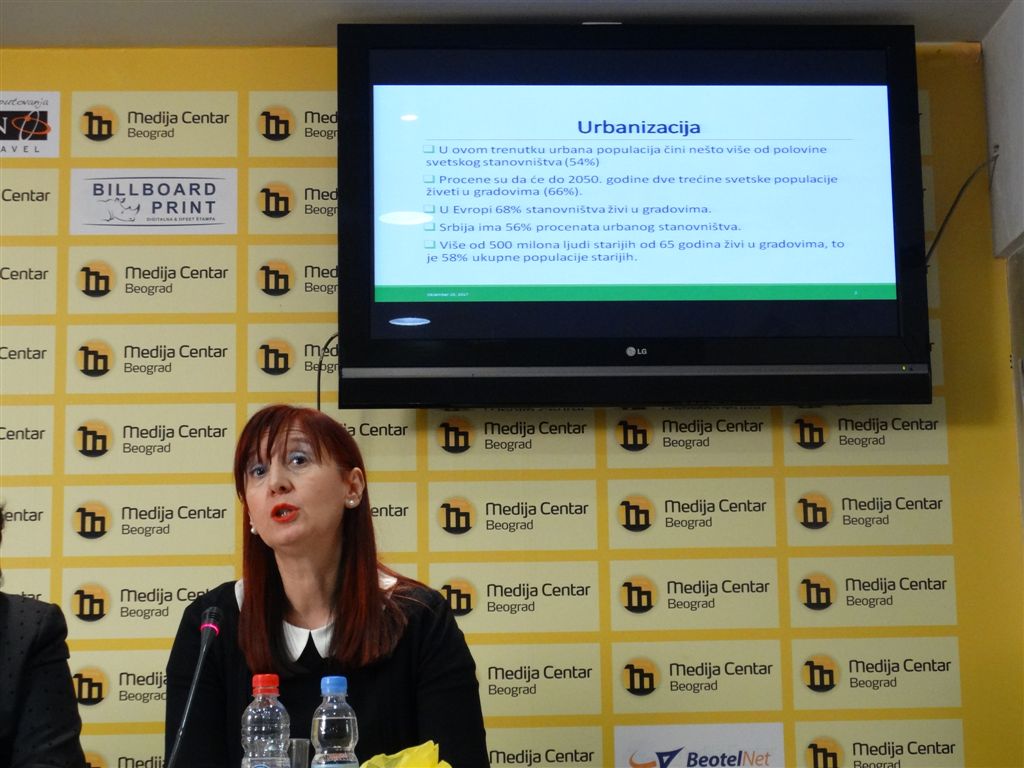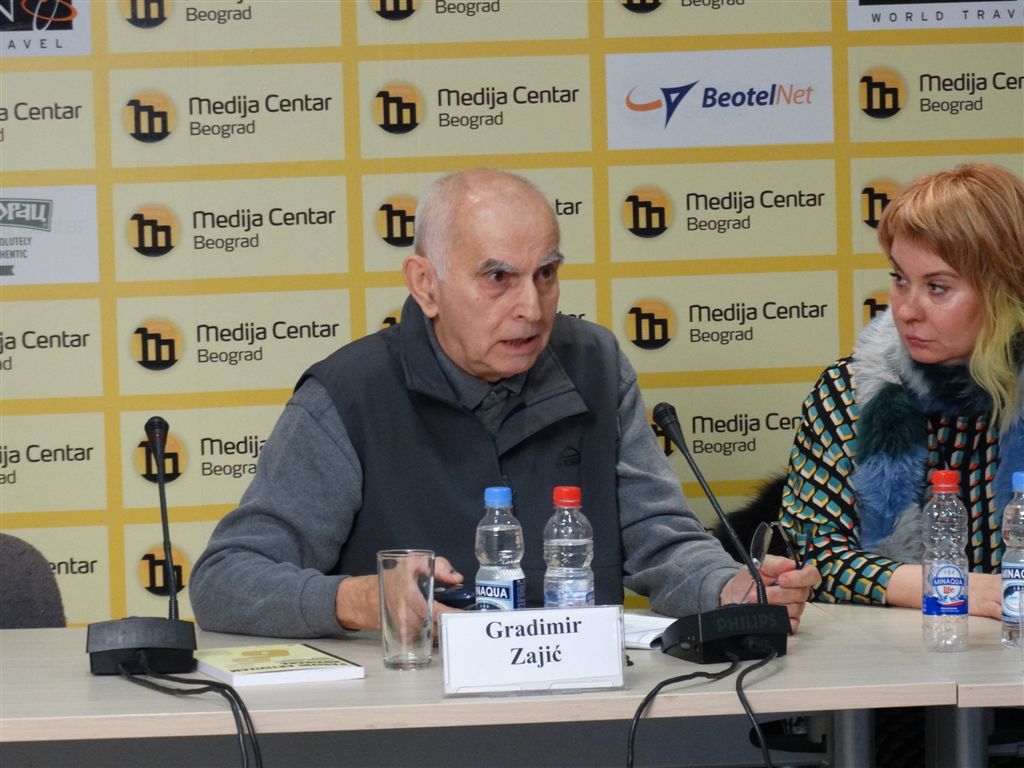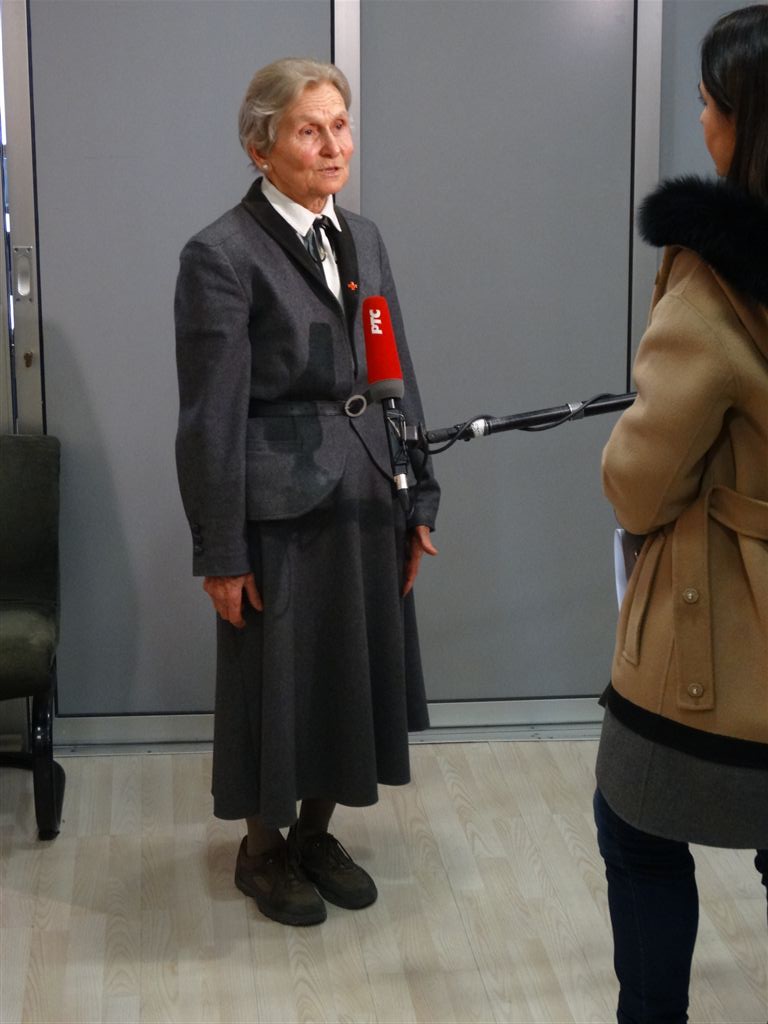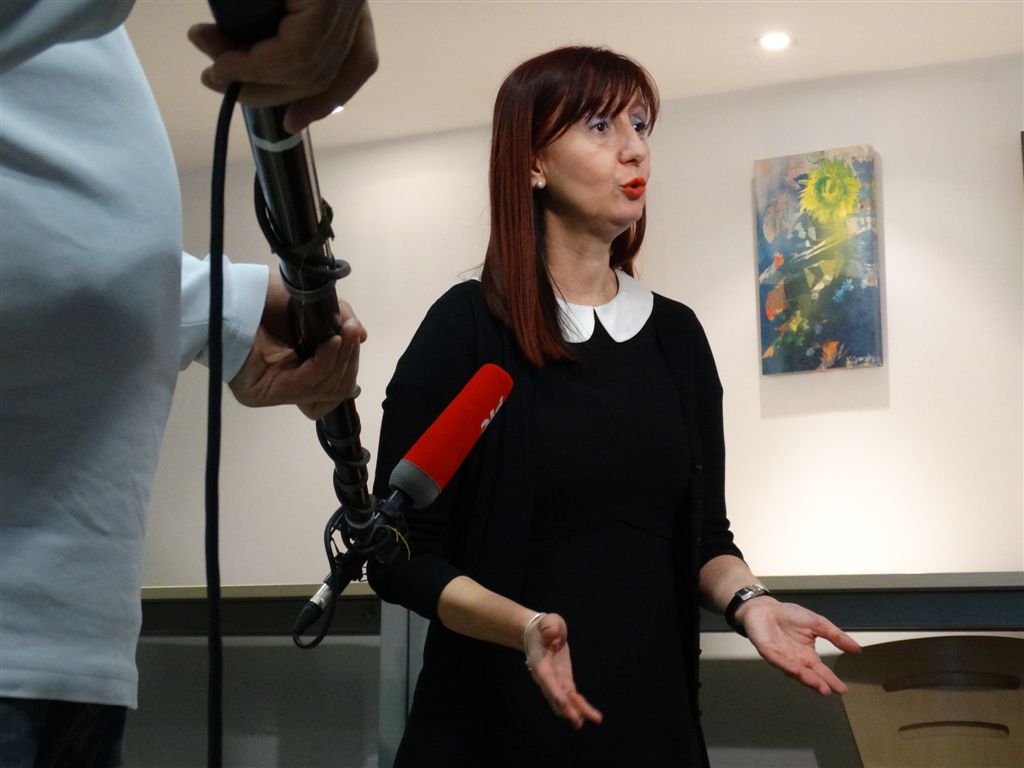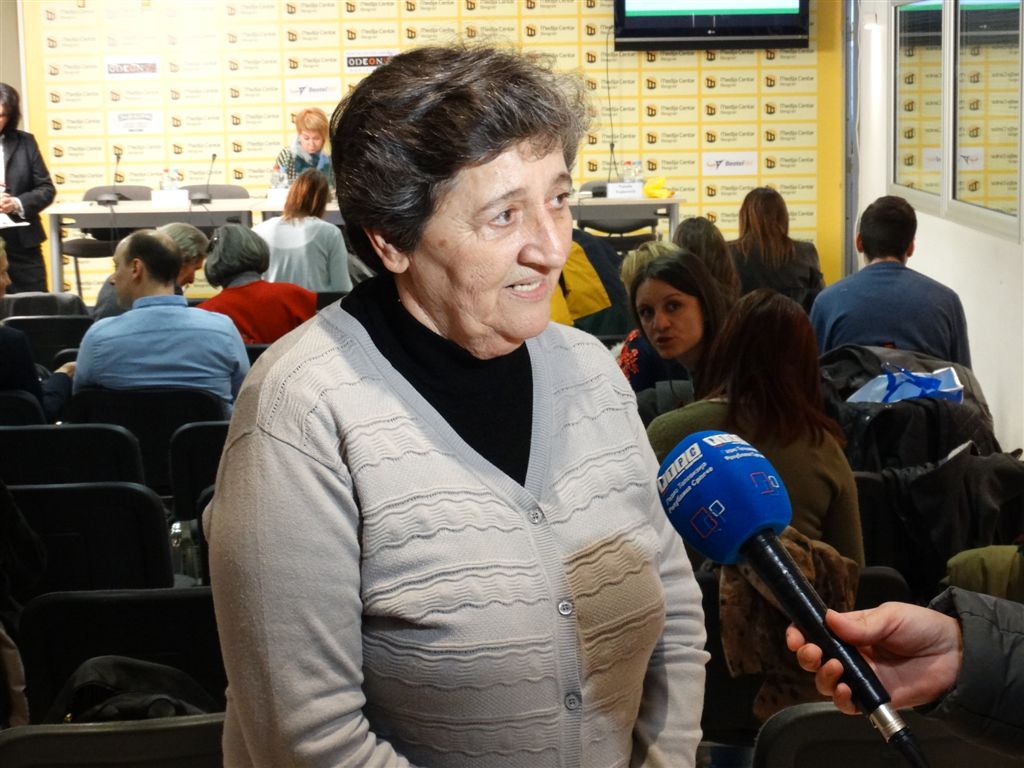KONFERENCIJA "STARENjE U GRADOVIMA - izazovi savremenog društva"
On 25 December 2017 in the Belgrade Media Centre a public presentation of results of a research „Ageing in cities – challenges of the modern society“ was organised. This research was done by the Red Cross of Serbia in cooperation with the Commissioner for Protection of Equality and support provided by United Nations Population Fund (UNFPA). The purpose of this research was to explore the main needs of older people in urban areas in Serbia, provide recommendations on how to improve their quality of lives as well as to promote examples of good practice. The research covered people over the age of 65 from 16 cities in Serbia.
At the presentation the speakers were Vesna Milenovic, Secretary General of the Red Cross of Serbia, BrankicaJankovic, Commissioner for Protection of Equality, Marija Rakovic, UNFPA, Gradimir Zajic, sociologist and Natasa Todorovic, Red Cross of Serbia.
The results of the research show that the most frequent need of older people in cities is for care provided in their own homes, followed by better accessibility of healthcare and public transportation. Non negligible percentage (9%) of older people in this research say that they have been discriminated against based on their age. Some other significant results include: the largest portion of interviewed older people (46%) consider their health to be neither good nor bad and the 30% of interviewees consider their health to be bad. Most of them have had at least one chronical illness for a while (76%). One out of ten has income below the absolute poverty line. 27% have a current need for support. One fourth has had a need to visit a physician but did not. 85% say that they feel safe in their neighbourhood and 3% feel unsafe in their neighbourhood.
As for the recommendations based on this research they include investing into urban infrastructure without architectural barriers that will enable pedestrians to move freely and safely, investing in affordable and accessible public transportation, supporting social engagement of older people through work, education, volunteering, art and recreation, evenly developing the network of primary healthcare institutions, ensuring that older people are well informed about changes in healthcare and social welfare service systems, as well about other services, organising training for informal caregivers, promoting of healthy life habits and combating age discrimination. The Sustainable Development Goals adopted by UN General Assembly in 2015 among other things include the concept of inclusive urbanisation. This means that older people should be included in the planning and decision making processes related to urbanisation, including elements such as safe and affordable public transportation, safe, accessible and inclusive public spaces such as parks and other green spaces.
